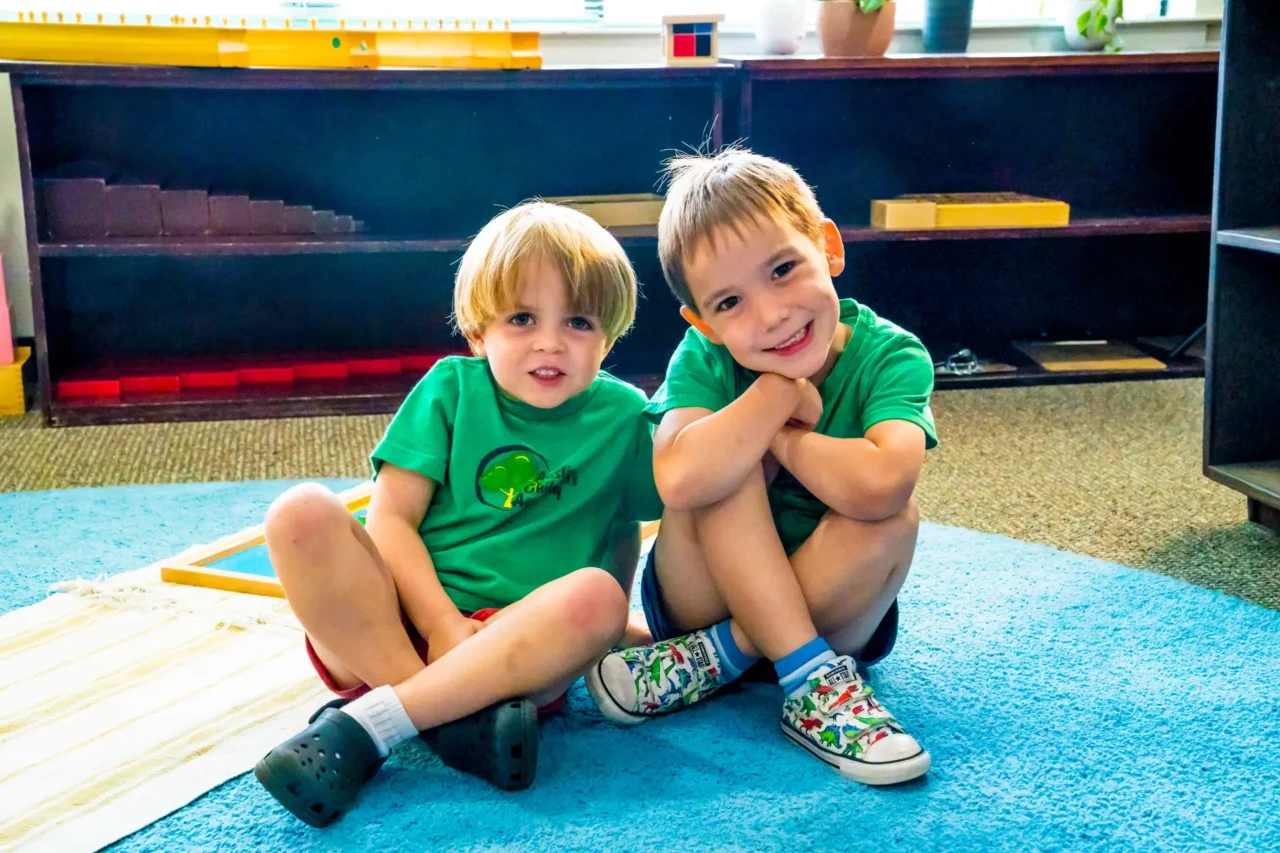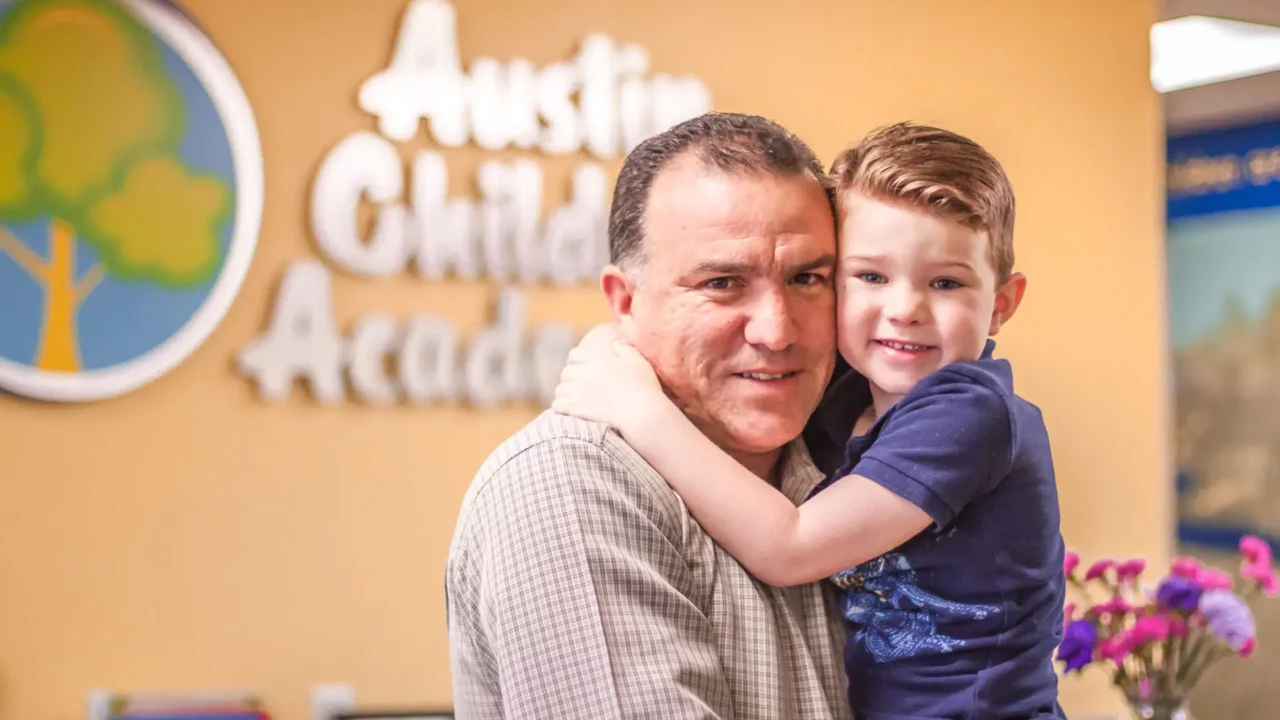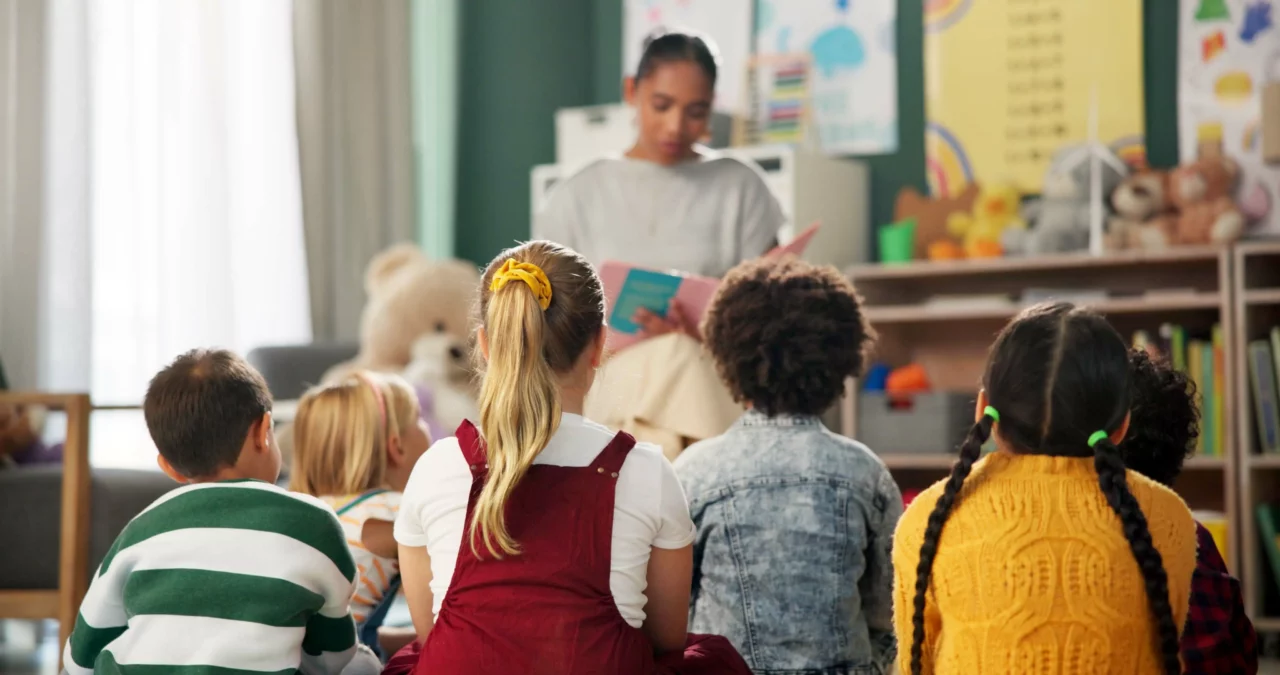
Dr. Maria Montessori spent a lifetime observing children in the classroom, using empirical observation to develop a teaching method that takes advantage of a child’s innate human needs and tendencies. By working with, rather than against, a child’s inborn impulses, the Montessori Method encourages self-directed advancement in order to cultivate a joy of learning.
So, what are these human needs and tendencies as they relate to the Montessori Method?
Order
Humans need both internal and external order to dispel the basic chaos of our lives and our minds. Schedules and systems are a simple cure. When a child knows what is going to happen next, they begin to learn concepts of sequence and logic and feel steadier in their world.
Orientation
People need to know where they are in a new situation, and how to navigate from one place to another. This involves not just time and place, but also who we are as an individual in a community. Only when we’re knowledgeable and comfortable with our current place do we feel emboldened to indulge curiosity and exploration.
Exploration
Children love to explore their world. Natural curiosity compels them to hunt down new sounds, smells, tastes, and places. Montessori schools encourage this human tendency by allowing children to explore without hesitation a safe and protected environment.
Activity, Manipulation, And Work
Children are restless and always moving, taking joy in the very act of physical exertion. The purpose of movement is to gain self-control and self-mastery. Children also constantly manipulate the world around them by piling blocks, sorting beads, and manipulating gears. The act of play is how they figure out how the world works and how they are able to affect it. This is, in effect, a child’s true work, which the Montessori Method recognizes as the important process children are encouraged to follow until they reach a point of satisfaction and move on.
Communication
Being able to articulate one’s own needs to a fellow being is one of the basic human tendencies. Communication is about mastering language, the reading of body language, gestures, as well as facial expressions. It’s about developing empathy for one another in a peaceful society by meeting communal expectations.
Imagination
Beyond the physical reality of their world, a child is hard-wired to imagine what could be. It’s this natural tendency for abstract thought that compels experimentation and innovation.
Repetition, Precision, Self-Perfection
Watch any toddler, and you’ll see him manipulating a new toy over and over again until he finally figures it out. Even then, he’ll continue to play until he reaches a point of exactness. Finally, he’ll continue to explore every facet of the toy until he believes he has reached perfect mastery.
It’s these final three tendencies that, working together, form the best and most fulfilling method of independent learning that is at the very core of the Montessori Method.






